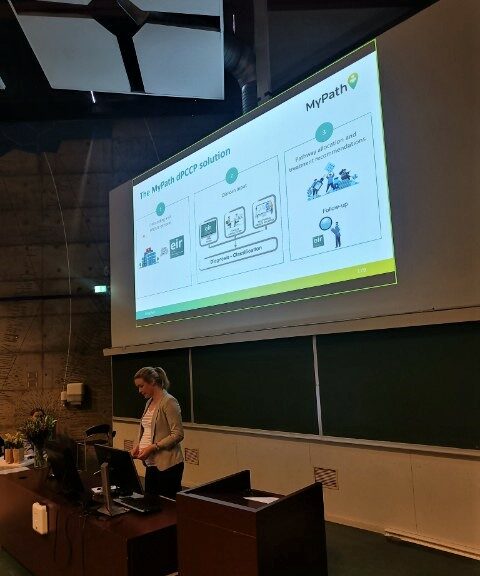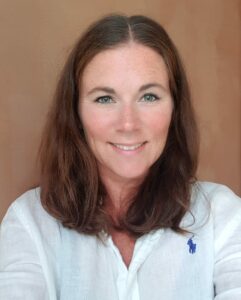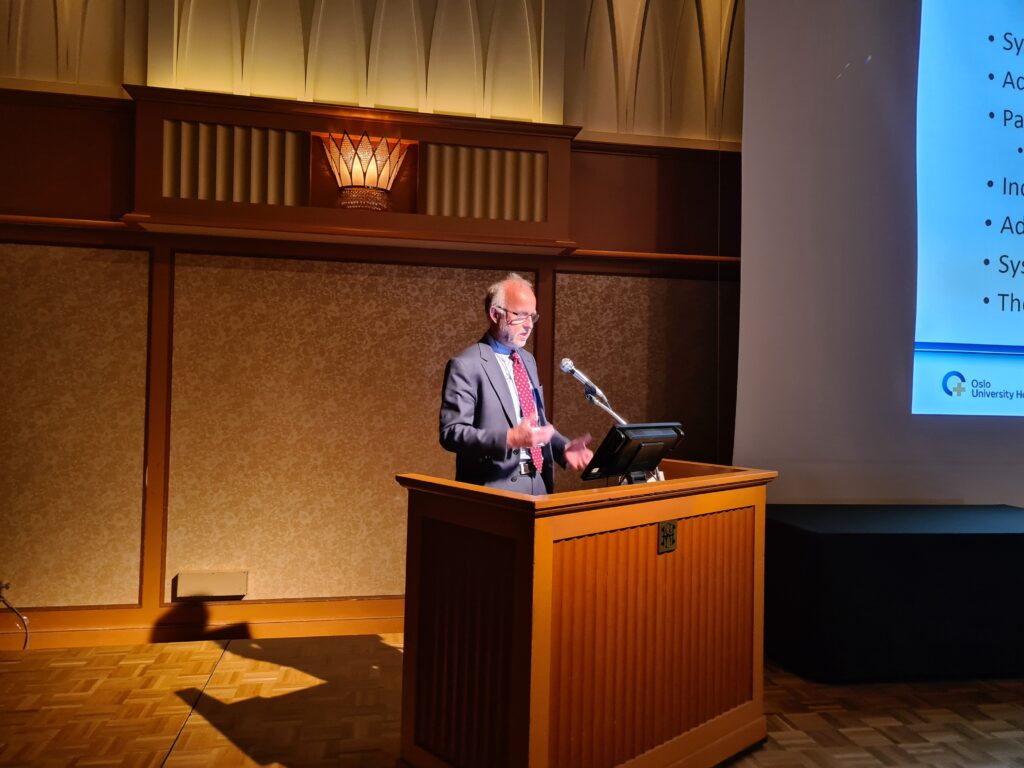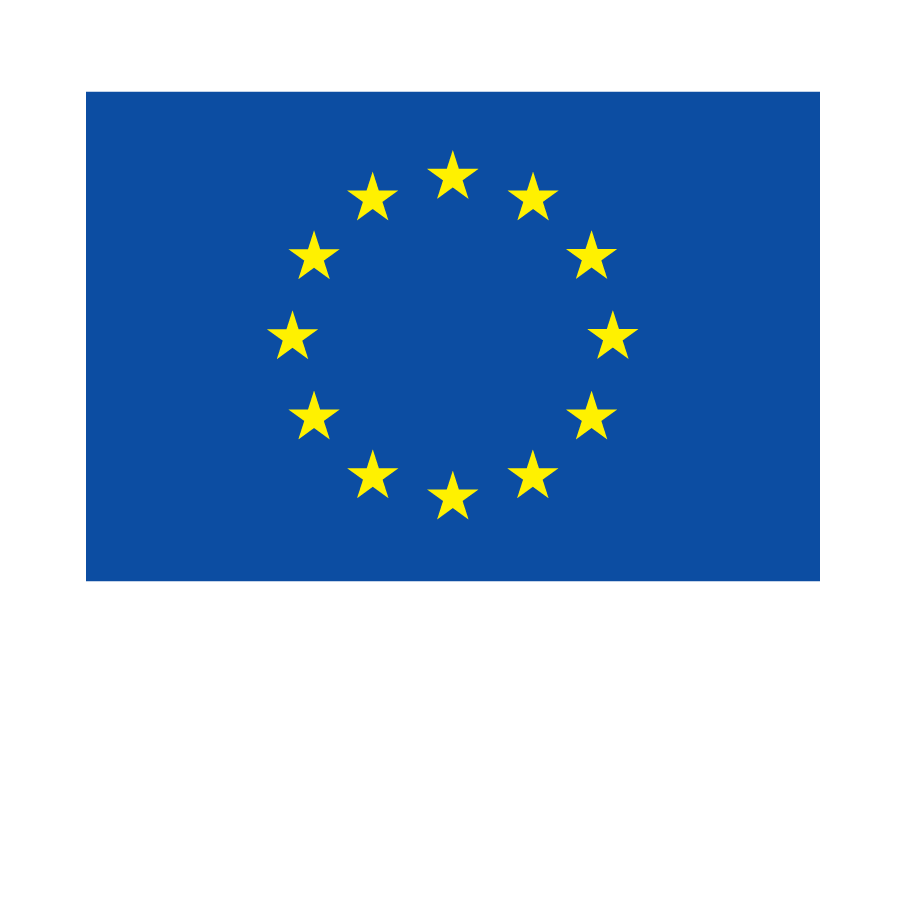In April, the MyPath project was presented at various international conferences, including a seminar on disease-related malnutrition at the University of Oslo, Norway, the CAN.HEAL High-Level Stakeholder Conference in Rome, Italy, and the Sapporo Conference for Palliative and Supportive Care in Cancer in Sapporo, Japan.
Seminar on disease-related malnutrition (21 April)
Organised by the Center for Clinical Nutrition, University of Oslo, the seminar ‘Disease-related malnutrition – Causes, prevention and intervention’ on 21 April brought together researchers, clinical dietitians, and policymakers in the area of nutrition. In the session on highlights in ongoing research, MyPath partners Dr. Tonje Lundeby and Dr. Kristin Solheim Hustad introduced the MyPath project, focusing on the nutrition pathway that is under development. After Dr. Lundeby presented the overall structure of the MyPath digital patient-centred care pathway solution, Dr. Hustad presented the current status of the content development of the nutrition pathway, which she coordinates. The seminar highlighted the high prevalence of malnutrition and symptoms affecting dietary intake in cancer patients and the need for better identification and patient-centred care for these patients.


CAN.HEAL High-Level Stakeholder Conference (26-27 April)
A few days later, Dr. Lundeby presented MyPath from a very different angle to an audience of high-level stakeholders at the CAN.HEAL High-Level Stakeholder Conference in Rome. The event brought together over 100 stakeholders including scientists, clinicians, public health decision-makers, representatives of the European Commission, Members of the European Parliament, patient organisations, and other interest groups.
As part of a session on tackling the implementation gap, Dr. Lundeby presented a Strengths, Weaknesses, Opportunities, and Threats (SWOT) analysis of MyPath and key actions to achieve sustainability beyond the project’s timeline, alongside other key driver EU-funded projects. An outcome of the conference will be the publication of a policy paper synthesising recommendations from the speakers regarding how the EU and other policymakers can contribute to achieving this kind of sustainability.
Sapporo Conference for Palliative and Supportive Care in Cancer (27-29 April)
Meanwhile, in Japan, several members of the MyPath project team were attending the 3rd and 4th joint Sapporo Conference for Palliative and Supportive Care in Cancer (SCPSC) as invited speakers. The conference, hosting researchers and clinicians in palliative and supportive care from all over the world, covered topics ranging from opioids and cancer pain to the integration of spiritual and existential issues in palliative care and technology-enabled care in palliative care and euthanasia.
Prof. Augusto Caraceni, Director of the Palliative Care Pain Therapy and Rehabilitation Unit at the National Cancer Institute of Milan, gave an overview of Electronic Patient Reported Outcome Measures (ePROMs) combined with the experience of telemedicine at his institute. The presentation is valuable to MyPath, as it will inform the process of incorporating ePROMs into the MyPath digital patient-centred care pathways, one of the next steps in the project. It also helps us understand better in what ways this could influence the individual clinics.

MyPath coordinator Prof. Stein Kaasa gave a talk titled Integration of Oncology and Palliative care – A review of its history and directions for the future. As a direction for the future, Prof. Kaasa presented the MyPath project and its current status. It generated a lot of interest among the audience; many clinical centres wished to be involved and to be kept informed about the project.
In another session on the determinants and effects of existential suffering in clinics of palliative care, MyPath Global Advisory Board member Prof. Camilla Zimmermann spoke about Discourses on death and dying and their effects on palliative care. “A challenging and interesting topic,” says Prof. Kaasa, “which is also relevant for MyPath. It is worth thinking about how we could include such considerations in the development of the MyPath solution.”
The three conferences have provided MyPath researchers with great opportunities to present the project to a highly diverse group of stakeholders from around the world, receiving valuable feedback from different perspectives and making new meaningful connections. To stay up to date with all MyPath activities and results, make sure to follow us on Twitter and LinkedIn!


